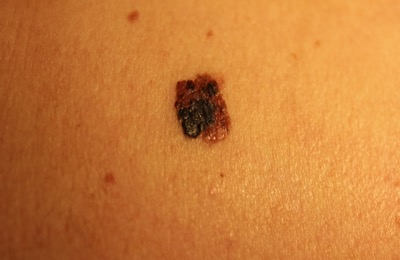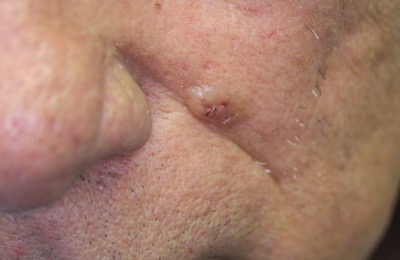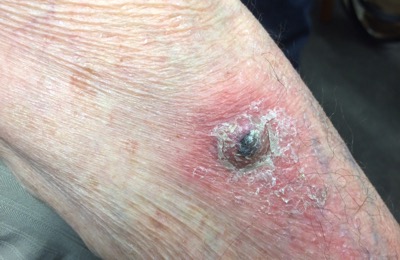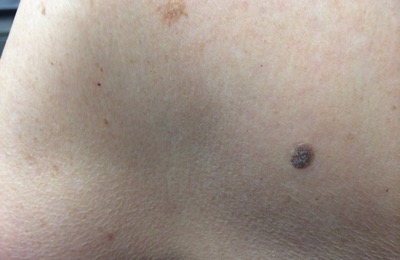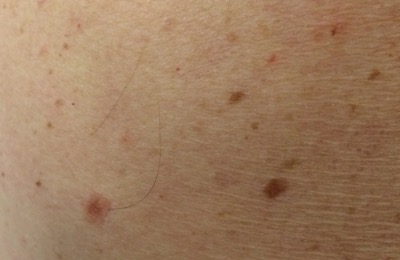Types of Skin Lesions
Melonoma
Melanoma is another common type of skin cancer, but is one of the most serious types of skin cancer.
More than 13,000 cases of melanoma are detected in Australia every year, and more than 1000 Australians die from melanoma each year.
Melanomas are formed from the pigment producing cells of the skin.
They can be found anywhere on the skin, not just in areas of sun exposure.
This includes in the scalp, the soles of the feet and even under finger and toenails.
Generally, they look dark and have an unusual shape or colour, but they can also be pink or grey.
Melanomas have a high chance of spreading to other organs in the body, which can be life-threatening.
Early detection is the most important thing in treating melanomas, which is why it’s important to have regular skin checks with a qualified professional.
Regular skins checks are a must, especially if you’ve had a lot of sun burns, used a tanning bed or solarium in the past, or if you have a relative who has had a melanoma.
Basal Cell Carcinoma
Basal Cell Carcinomas are the most common type of skin cancer.
They are formed from basal cells in the skin, which usually form new skin cells when older cells die off.
Basal Cell Carcinomas can often look like a pearly bump or lump, a red patch or a sore that doesn’t heal.
They are common in areas that have seen a lot of sun, such as the face, ears, neck and back, but can form anywhere.
Basal Cell Carcinomas rarely spread through the body – usually they just continue to grow in the area they form.
Squamous Cell Carcinoma
Squamous Cell Carcinomas are the next most common type of skin cancer.
They are formed from the cells in the outermost layers of the skin.
Squamous Cell Carcinomas often look like scaly lumps and occur mostly in sun exposed areas.
Unlike Basal Cell Carcinomas, Squamous Cell Carcinomas have a higher chance of spreading to other parts of the body if left untreated.
Most non-melanoma skin cancers can be easily treated if detected early.
The best way to find them is by having a skin check with your GP or skin cancer doctor.
